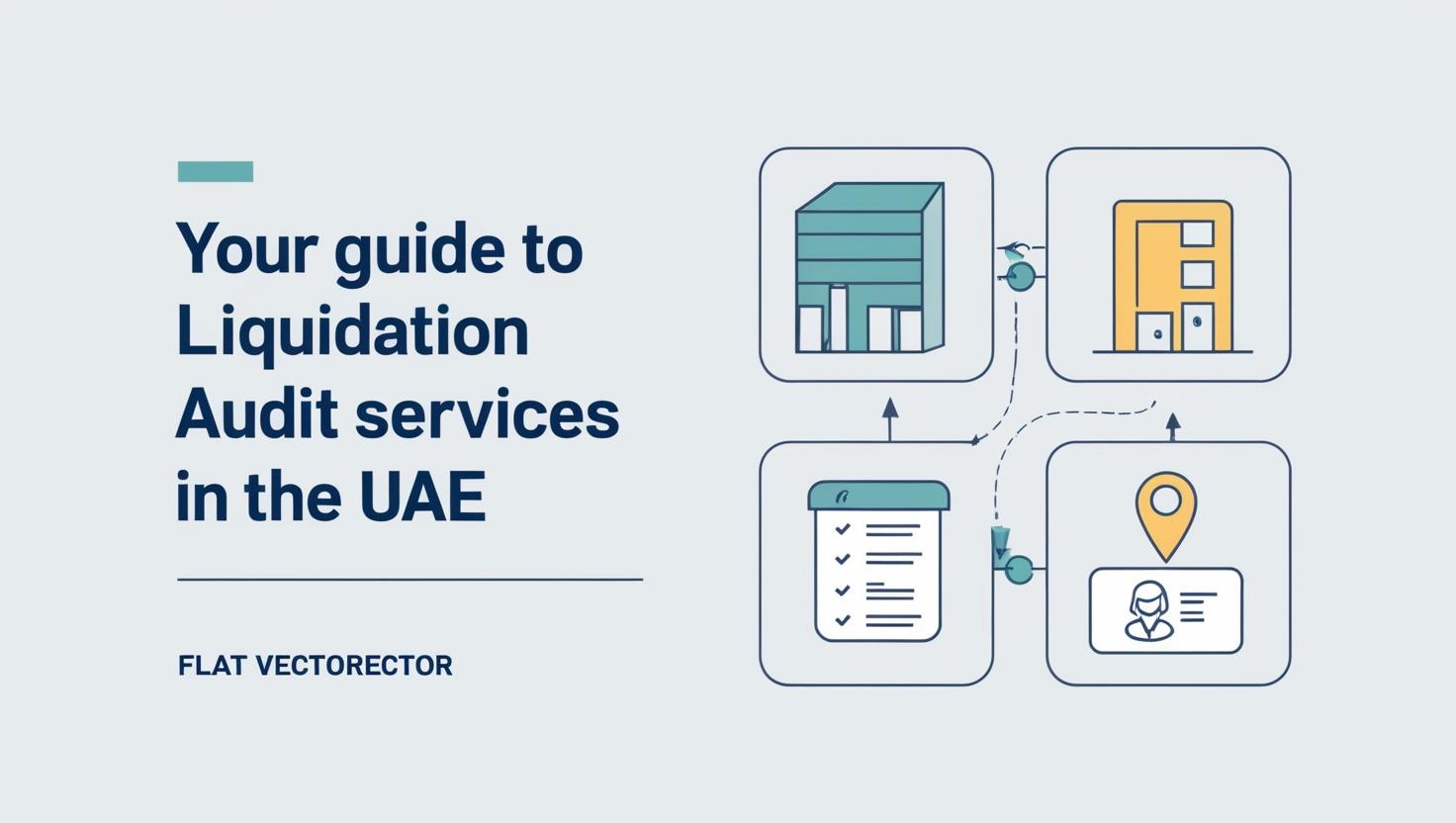 YOUNG AND RIGHT
YOUNG AND RIGHT ACCOUNTING & TAX CONSULTANCY
From corporate tax registration to audits and bookkeeping, Young & Right offers personalized solutions that keep your business compliant and stress-free. Let’s take the complexity off your plate—starting with a free consultation.
Book Your Free Consultation
Business liquidation is the legal process of closing down a business, which involves selling off the company's assets to pay off outstanding debts and obligations, followed by its official closure. In the UAE, the company liquidation process can be either voluntary or compulsory, depending on whether the business is in financial distress or the owner simply chooses to shut down operations. While company liquidation is often a difficult decision, it is a necessary step for businesses that are no longer viable.
The UAE offers structured and well-defined legal frameworks to guide the liquidation process, ensuring that the rights of creditors, employees, and other stakeholders are fully protected. These laws apply to both mainland and free zone companies, each of which may follow specific procedural rules. Engaging professional company liquidation services is crucial to navigating these legal requirements and completing the process efficiently.
However, one critical component of the company liquidation process that cannot be overlooked is the liquidation audit. This financial and legal review plays a key role in confirming that the company has met all its financial obligations and properly accounted for its assets before being formally dissolved. The company liquidation audit provides the transparency and compliance assurance necessary for a successful business closure in accordance with UAE laws.
In the UAE, businesses must comply with several regulations when undergoing company liquidation, including the UAE Commercial Companies Law, the Dubai International Financial Centre (DIFC) regulations, and other relevant local laws enforced by government entities such as the Dubai Economic Department. The UAE company liquidation process requires strict adherence to legal protocols, particularly when closing operations within free zone companies like JAFZA, DAFZA, or DIFC, which have their own sets of rules during the liquidation process.
A liquidation audit is mandatory and ensures that the company’s financial records have been accurately prepared, that all liabilities and financial obligations have been cleared, and that the company's assets are fairly valued and properly distributed. This audit plays a central role in fulfilling regulatory compliance and ensuring the accuracy of final accounts before the business is formally closed or deregistered.
The company liquidation audit process helps identify any discrepancies in the company's finances and provides a structured path toward closure. For businesses operating in the UAE, this step is essential to verify compliance with local tax laws, financial reporting standards, and legal requirements necessary for company dissolution.
To manage this effectively, many businesses opt for professional liquidation audit assistance in Dubai or other emirates. These specialized liquidation services streamline the audit, reporting, and deregistration processes, ensuring that every step of the company liquidation is handled in accordance with UAE regulations.
One of the most critical aspects of liquidation is the final liquidation report. This report confirms the accuracy of the company's financial records and verifies that the liquidation process has been carried out according to the law. Accurate liquidation audit reports are essential for compliance, and provide transparency to creditors, stakeholders, and other interested parties.
A clean and accurate final audit report is vital for:
Ensuring that the business has met all tax obligations, including VAT, corporate taxes, and employee-related taxes.
Meeting local government authorities and free zone authority regulations, including anti-money laundering measures that businesses must follow to avoid financial crime. Ensuring adherence to goaml, the UAE's financial intelligence unit system for reporting suspicious transactions, is also crucial during the liquidation process.
Ensuring all financial obligations, debts, and outstanding liabilities are settled appropriately.
Validating that the company’s financial statements are accurate and reflect the actual state of affairs.
Failure to provide a thorough and accurate liquidation audit report can lead to penalties, disputes, or delays in company closure.
Successfully completing the company liquidation process in the UAE requires adherence to structured procedures and regulatory requirements. Here's a clear breakdown of the essential steps involved in a compliant and efficient liquidation audit:
Begin with a thorough assessment of the company’s financial data to determine solvency. This involves the preparation of initial financial statements and sharing them with licensed audit firms. An early-stage internal audit may be recommended to identify discrepancies before initiating the formal liquidation audit.
Assign a licensed liquidator responsible for handling the company’s assets, overseeing asset sales, managing liabilities, and serving as the point of contact with audit firms. The liquidator ensures compliance with all financial and legal protocols in the prevailing business environment.
The liquidator initiates asset valuation, prepares the inventory of tangible and intangible assets, and facilitates asset distribution. Proceeds from asset sales are used to settle outstanding debts, ensuring that creditor payments are made in a legally prioritized order, which is especially vital if the company ceases operations due to insolvency.
During this phase, the company must meet all regulatory requirements, including tax obligations with the Federal Tax Authority (FTA). This step includes the submission of VAT filings, tax clearance, and securing a liability certificate printed by the FTA. Companies operating within free zones or areas like the Dubai Multi Commodities Center (DMCC) must also ensure they comply with jurisdiction-specific rules.
The liquidation audit involves a detailed examination of bank accounts, financial transactions, and confirmation that all liabilities are resolved. The appointed auditor prepares a complete liquidation report, which is reviewed and used to finalize the post liquidation audit process.
Once the liquidation audit report is approved, the company must proceed with submitting it to the Dubai Economic Department, Ministry of Economy, and/or the relevant free zone authority. This final step includes canceling the business license, official deregistration, and concluding the company liquidation process in full compliance with UAE regulations.
Businesses must provide:
→ Financial statements
→ Asset distribution records
→ Debt settlement documentation
→ Signed no liability certificate
→ Company's letterhead stating all final positions
→ Bank closure letters
→ Company’s trade license cancellation form
Young and Right is among the only approved firms offering trusted and professional liquidation audit services in the UAE. We specialize in guiding businesses through every stage of the company liquidation procedure, whether you operate within the free zones or on the mainland. Our strength lies in delivering smooth and compliant closures that meet all UAE regulatory requirements.
We provide expert guidance tailored to various entity types, including LLC companies, limited liability companies, and free zone registered company structures. Our team ensures that company owners understand their responsibilities and the steps involved in fulfilling company obligations before closure.
Our end-to-end company liquidation services include asset valuation, documentation of respective bank liabilities, preparation of reports, and assistance in final submissions to relevant authorities such as the Federal Tax Authority. We also support the closure of bank accounts, license cancellation, and handling other company obligations to ensure a seamless process.
Whether you are undergoing voluntary liquidation, compulsory liquidation, or creditors voluntary liquidation, our team provides tailored solutions that align with your company’s financial and legal requirements. We manage the interests of all parties involved, including shareholders, creditors, and government bodies.
We perform liquidation audits that result in detailed, transparent, and compliant reporting. Our final liquidation audit reports conform to international auditing standards and meet the liquidation audit mandatory requirements set by regulatory authorities. The reports clearly present how assets were handled, debts cleared, and remaining funds managed.
We understand the importance of a swift and legally compliant closure. That’s why our liquidation services in Dubai are executed with precision and minimal disruption to the company’s operations. Our team ensures a smooth exit while preserving the company’s legacy through proper recordkeeping and fair distribution of remaining assets.
A liquidation audit is not just an administrative task, it’s a critical legal and financial requirement for a smooth liquidation process. Whether you’re navigating a business closure due to insolv ency or opting for voluntary company liquidation, expert guidance ensures a compliant and efficient exit.
At Young and Right, our deep understanding of UAE regulations, track record with company liquidation in Dubai, and commitment to client satisfaction make us the trusted choice for businesses seeking clear, complete, and compliant company liquidation services.
Let Young and Right guide you through a seamless, compliant liquidation audit and ensure a smooth business closure. Contact us today for expert support and professional advice.
Get Started with Your Liquidation Audit